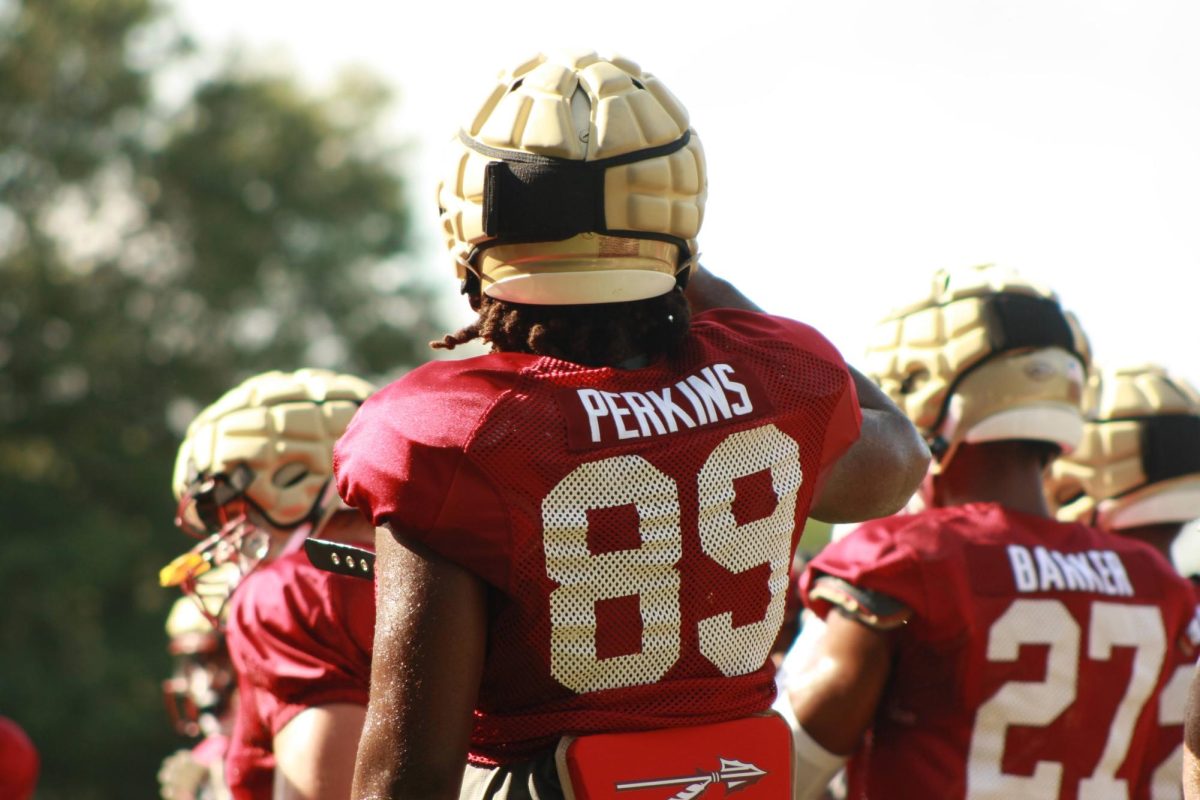This article expresses the views of its author(s), separate from those of this publication. Readers are encouraged to comment or submit a Letter to the Editor to share their opinions. To submit a Letter to the Editor, follow the instructions here.
In 2014, college football changed forever.
After almost two decades of the Bowl Championship Series, the postseason for Division I FBS college football would be organized into a four-team playoff system. This system, simply known as the College Football Playoff (CFP), was created to put an end to the BCS’ antiquated, convoluted rankings system. In theory, a 13-member committee will select the best four teams each year for a chance to play for the National Championship.
Almost a decade later, what was supposed to bring balance to college football has become the same convoluted bureaucracy it sought to destroy.
Before I go further, let me preface that I am extremely biased. I am a fan of the Florida State Seminoles. My dad went there for two years before transferring to UCF (another playoff snub), and my older brother earned his degree at FSU. I am far from a bandwagon fan—donning the garnet and gold and expressing my eternal contempt for UF since I knew what football was.
Despite my undying loyalty, this season surprised me. Although the Seminoles were given a top-ten ranking in the preseason, I wasn’t expecting this team to be in playoff contention yet. I figured head coach Mike Norvell would need an extra year to rebuild the program in his image.
To kick off the season, they took down fifth-ranked LSU, 45-24, in the Citrus Bowl (no, I am not calling it Camping World Stadium). From there, the wins just kept coming. There were some nail-biters here and there, but I slowly started to realize that this team was something special.

The defense was playing at a championship caliber (Jared Verse is an absolute beast out there), but the star of the show was redshirt senior quarterback Jordan Travis. The entire season, he was putting up Heisman-worthy stat lines. He was primed to lead FSU to a national title in his final year of eligibility.
Then North Alabama happened. Travis breaks his leg at home on Senior Night. Despite the 58-13 win, his season was over.
Enter backup quarterback Tate Rodemaker. The redshirt junior had seen sparse action in the waning moments of blowout wins in relief of Travis, but he was given a tall task: beating the Gators in their home swamp. After a solid game, 24-15, FSU improved to 12-0, a perfect regular season. Just one catch—Rodemaker also gets injured, this time with a concussion.
Hey, who’s that? It’s true freshman Brock Glenn, the new starting quarterback for the Seminoles! He, uh, played in the ACC Championship game, but the defense put on a masterclass, beating the Louisville Cardinals 16-6. ACC champions, 13-0, and surely a safe bet for the College Football Playoff, right?
On Dec. 3, 2023, the 13-member College Football Playoff Committee announced their final top-25 rankings for the 2023 season. The top four teams will play for the National Championship.
Number one: Michigan Wolverines (13-0)
Number two: Washington Huskies (13-0)
Number three: Texas Longhorns (12-1)
Wait a second. Well, at least the fourth spot will be Flo-
Number four: Alabama Crimson Tide (12-1)
No, no, no—they did not just do this to us.
A 13-0 season, No. 3 strength of record and the continued success after Travis’ injury are all more than enough for a playoff spot. Never in college football history has an undefeated Power Five conference champion been barred from competing for the national title.
Boo Corrigan, the CFP’s current chairman and athletic director for North Carolina State University (which also competes in the ACC, definitely no conflict of interest here), had this to say about the biggest snub in college football: “Without Jordan Travis, they are a different team.”
To be fair, he’s right. FSU is a different team without their first-string quarterback. So was Ohio State in 2014, Alabama in 2017, Clemson in 2018 and Georgia in 2021. For those who don’t spend time watching men in tight shorts hitting each other, all four teams ended their seasons hoisting the National Championship trophy.
The committee also mentioned the Seminoles’ lackluster offensive performance in the ACC title game as another reason for their decision, but fun fact (actually, two) FSU won their title game by a wider margin than fourth-ranked Alabama did in theirs, and since Travis’ injury, have thrown only eight less passing yards than top-ranked Michigan.

FSU also boasted the 55th most difficult schedule. Not a compelling case for the playoffs, but keep in mind that ACC Championship foe Louisville was ranked higher (No. 15) than Texas’ opponent in the Big 12 Championship, Oklahoma State (No. 18).
How is FSU a different team again?
I could mention many more reasons why the committee got it wrong, but I must look ahead to keep my sanity. I’m most concerned about the precedent this decision has set for selecting playoff teams in the future.
Since the beginning of the sport, the teams with the most wins have always been guaranteed a chance to compete for a championship. Fast forward to 2023, and the regular season record doesn’t matter anymore. The opinions of 13 football bureaucrats do. FSU’s snub from the playoffs demonstrates that the committee is more concerned about sportsbooks and TV ratings than who the four best teams are.
“I am disgusted and infuriated with the committee’s decision today to have what was earned on the field taken away because a small group of people decided they knew better than the results of the games,” head coach Mike Norvell said in a Dec. 3 statement.
What was supposed to be a better version of the BCS has shown itself to be a carbon copy. They just cast their votes behind computer screens in fancy hotels now.
The CFP will expand the playoff field to include 12 teams next season, but it’s all too little, too late. They fumbled, big time.
Fifth-ranked FSU will play the sixth-ranked Georgia Bulldogs in the Orange Bowl in Miami this Dec. 30. It’s a bitter end to an amazing season, but I’ll still support my Noles. At least New Year’s in Miami doesn’t sound too bad.
___
For more information or news tips, or if you see an error in this story or have any compliments or concerns, contact editor@unfspinnaker.com.










